When it comes to trying to jump-start labor when you are due or overdue, there are plenty of old wives’ tales you can try, ranging from ideas that sound sort of fun (trampoline jumping, anyone?) to those that sound down right awful (I’m looking at you, castor oil). But are any of these methods actually scientifically proven to work? Or are there just lots of super pregnant women having sex for no good reason whatsoever… I put on my researcher hat to see if I could find out what science has to say about getting labor started. You might be surprised to see what works and what is just going to give you gas. It should go without saying, but I’m gonna say it anyways: Always talk to your doctor before trying any of these ideas! Image via iStock.com/Vasileios Economou You can bet that I was dying to know: Does sex actually bring on labor? According to Dr. Sarah Leadley, an ob-gyn in Saint Paul, Minnesota, “Theoretically, sex could help because semen contains prostaglandins (chemicals that can soften the cervix and cause contractions), but clinically I don’t think there is evidence that sex is effective.” Dr. Leadley’s view seems to be supported by research from Dr. Tan Peng Chiong, who studied more than 1,100 women in the late stages of pregnancy. The short answer is no. In research published in BJOG: An International Journal of Obstetrics & Gynaecology, Dr. Chiong and his fellow researchers found that how much sex women reported they were having didn’t seem to have an effect on when they went into labor. So, go ahead and have sex, but only as a distraction from the fact that you are still pregnant. Because active bowels can be an early sign of labor for some women, there are those who think the robust bowel movements caused by castor oil means labor has started. Not so, according to Dr. Leadly, who notes that “castor oil and enemas will make the bowels active but not the uterus. GI distress can feel like contractions, but they are separate organs.” GI distress was one of the reasons castor oil was a method I was totally unwilling to try. I can’t lie, I was totally afraid of the side effects. Being super pregnant AND having diarrhea sounded like a nightmare to me. According to study cited by the National Institute of Health, my decision was a good one. Researchers found that using castor oil for induction of labor “had no effect on time to birth nor were there harmful side effects observed.” But the conclusion was there is “no justification for recommending castor oil” as a way to kick-start labor. When it comes to walking, there is evidence to support that walking once you are in labor is helpful, as it can help the baby move down toward the right position in the pelvis. However, there is simply no research that proves that walking gets labor started. There are those who believe that walking can help reduce anxiety and make mom more comfortable as labor approaches, but these beliefs are based more on common sense and ancedotes than hard science. So once again, the advice seems to be take a walk to take your mind off things, but don’t expect that it is going to coax a reluctant baby out. More from CafeMom: 11 Dads Who Fainted, Barfed, or Literally Pooped Their Pants in the Delivery Room Dr. Leadly notes that spicy food goes into the same category as castor oil — something that will cause GI distress, not labor. She shares that this myth continues because “despite a lack of good medical evidence, many women (including pregnant ob-gyns!) try all kinds of things to get labor started!” However, there is controversy about the tea, even though 62 percent of midwives suggest using it. According to a meta-analysis (or a study of all the studies) of 12 research projects about raspberry leaf, it is unclear if there is actually a positive benefit or not. In fact, one study found possible indications of increased risks for the unborn child, including some evidence, in animal studies, of increased risks for the baby to go into early puberty. So this is definitely one to ask your doctor about first! Science says no, but the good news is that there are still great reasons to book that rubdown! Massage and aromatherapy might not kickstart labor, but they can be beneficial to reducing maternal anxiety and stress. An unstressed mama-to-be is a good thing! I suspect that is because scientists are not about to do something as risky as bump a woman around a car to see if they can knock a baby loose. Dr. Leadly agrees and notes that she suggests pregnant women should “avoid bumpy road driving and trampolines!” So let’s call this one a “no” when it comes to scientific support. There is also some research that suggests is might be helpful where labor is concerned as well as acupuncture might help shorten labor times. Further, it is unlikely to be harmful to the fetus so this might be a good one to ask your doctor about! Beyond tasting good and being a great healthy snack for a pregnant lady, pineapple contains an enzyme called bromelain that some say will help ripen your cervix and make labor easier. Proponents say drinking fresh pineapple juice or making a pineapple smoothie can give you not only some vitamin C but will also stimulate prostaglandins, or the hormones that help labor get started. Unfortunately, the scientific research on this topic shows that the amount of pineapple you’d have to eat to induce labor is so enormous that you’d likely end up with a major case of diarrhea before you’d see any positive labor starting effects. Also possible? Heartburn and irritation of the tongue caused by citric acid. I’d put this one in the “skip it” category! At one of my last OB appointments, my doctor offered to strip my membranes to see if it would help me dilate more. Stripping membranes involves the doctor inserting a gloved finger into the cervix to try to separate the bag of water from the sides of the uterus. It is not a comfortable experience and there can be spotting afterward. With my second pregnancy, I vowed to never go through that again, which turns out to be a good decision as there is no evidence that says it actually works unless you are already past 41 weeks along. Dr. Leadly notes that for women who are at full term, “having a doctor strip or sweep the membranes decreases the incidence of going overdue and needing induction but there is no guarantee” that it will work. The bottom line is that if you are at 40 weeks, this might be one to ask you doctor about but brace yourself for some discomfort with no guarantee of success. The theory is that stimulating nipples can help the body release oxytocin, which is the hormone that initiates labor and can make contractions stronger and longer. Research found that nipple stimulation seemed to help women go into labor within 72 hours and seemed to reduce the risk of postpartum hemorrhage rates! According to Dr. Leadly, you can use a breast pump or your hands to stimulate your nipples and, if the cervix is ready, it can “induce labor in some women.” So, good ahead, get to second base with yourself! It just might work!


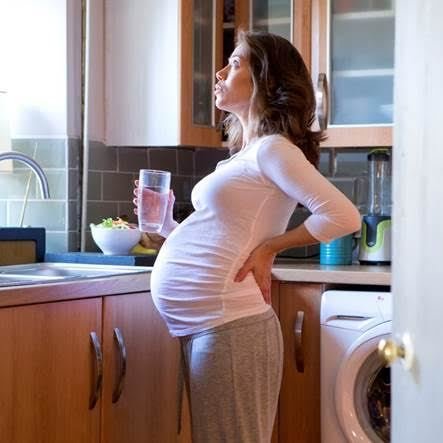
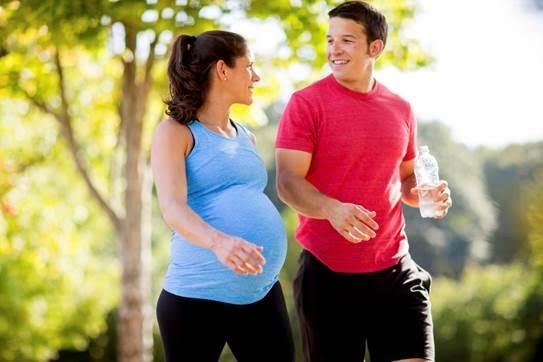


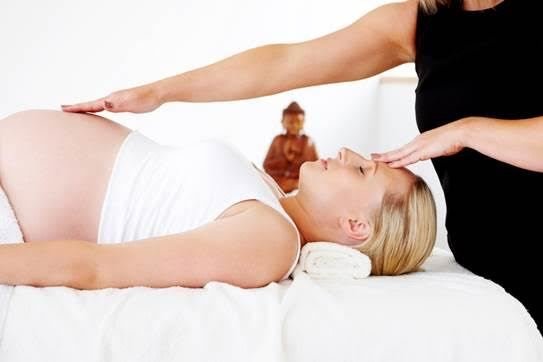
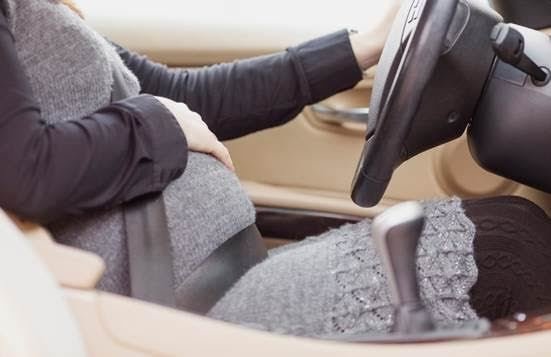


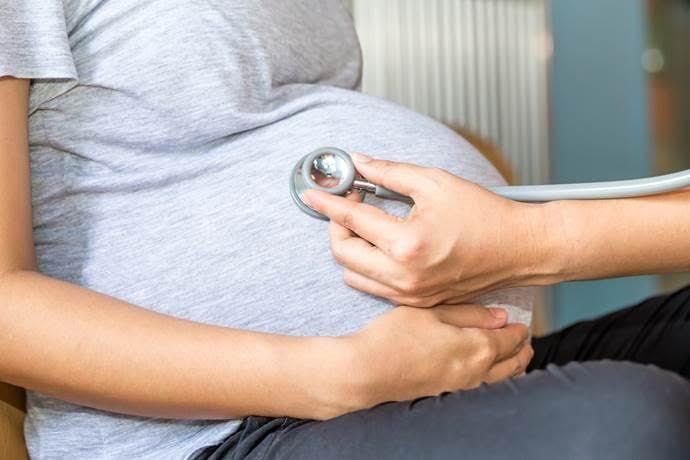


title: “The Truth Behind Those At Home Tricks To Make Labor Start According To Science” ShowToc: true date: “2024-10-17” author: “Rachel Hurd”
When it comes to trying to jump-start labor when you are due or overdue, there are plenty of old wives’ tales you can try, ranging from ideas that sound sort of fun (trampoline jumping, anyone?) to those that sound down right awful (I’m looking at you, castor oil). But are any of these methods actually scientifically proven to work? Or are there just lots of super pregnant women having sex for no good reason whatsoever… I put on my researcher hat to see if I could find out what science has to say about getting labor started. You might be surprised to see what works and what is just going to give you gas. It should go without saying, but I’m gonna say it anyways: Always talk to your doctor before trying any of these ideas! Image via iStock.com/Vasileios Economou You can bet that I was dying to know: Does sex actually bring on labor? According to Dr. Sarah Leadley, an ob-gyn in Saint Paul, Minnesota, “Theoretically, sex could help because semen contains prostaglandins (chemicals that can soften the cervix and cause contractions), but clinically I don’t think there is evidence that sex is effective.” Dr. Leadley’s view seems to be supported by research from Dr. Tan Peng Chiong, who studied more than 1,100 women in the late stages of pregnancy. The short answer is no. In research published in BJOG: An International Journal of Obstetrics & Gynaecology, Dr. Chiong and his fellow researchers found that how much sex women reported they were having didn’t seem to have an effect on when they went into labor. So, go ahead and have sex, but only as a distraction from the fact that you are still pregnant. Because active bowels can be an early sign of labor for some women, there are those who think the robust bowel movements caused by castor oil means labor has started. Not so, according to Dr. Leadly, who notes that “castor oil and enemas will make the bowels active but not the uterus. GI distress can feel like contractions, but they are separate organs.” GI distress was one of the reasons castor oil was a method I was totally unwilling to try. I can’t lie, I was totally afraid of the side effects. Being super pregnant AND having diarrhea sounded like a nightmare to me. According to study cited by the National Institute of Health, my decision was a good one. Researchers found that using castor oil for induction of labor “had no effect on time to birth nor were there harmful side effects observed.” But the conclusion was there is “no justification for recommending castor oil” as a way to kick-start labor. When it comes to walking, there is evidence to support that walking once you are in labor is helpful, as it can help the baby move down toward the right position in the pelvis. However, there is simply no research that proves that walking gets labor started. There are those who believe that walking can help reduce anxiety and make mom more comfortable as labor approaches, but these beliefs are based more on common sense and ancedotes than hard science. So once again, the advice seems to be take a walk to take your mind off things, but don’t expect that it is going to coax a reluctant baby out. More from CafeMom: 11 Dads Who Fainted, Barfed, or Literally Pooped Their Pants in the Delivery Room Dr. Leadly notes that spicy food goes into the same category as castor oil — something that will cause GI distress, not labor. She shares that this myth continues because “despite a lack of good medical evidence, many women (including pregnant ob-gyns!) try all kinds of things to get labor started!” However, there is controversy about the tea, even though 62 percent of midwives suggest using it. According to a meta-analysis (or a study of all the studies) of 12 research projects about raspberry leaf, it is unclear if there is actually a positive benefit or not. In fact, one study found possible indications of increased risks for the unborn child, including some evidence, in animal studies, of increased risks for the baby to go into early puberty. So this is definitely one to ask your doctor about first! Science says no, but the good news is that there are still great reasons to book that rubdown! Massage and aromatherapy might not kickstart labor, but they can be beneficial to reducing maternal anxiety and stress. An unstressed mama-to-be is a good thing! I suspect that is because scientists are not about to do something as risky as bump a woman around a car to see if they can knock a baby loose. Dr. Leadly agrees and notes that she suggests pregnant women should “avoid bumpy road driving and trampolines!” So let’s call this one a “no” when it comes to scientific support. There is also some research that suggests is might be helpful where labor is concerned as well as acupuncture might help shorten labor times. Further, it is unlikely to be harmful to the fetus so this might be a good one to ask your doctor about! Beyond tasting good and being a great healthy snack for a pregnant lady, pineapple contains an enzyme called bromelain that some say will help ripen your cervix and make labor easier. Proponents say drinking fresh pineapple juice or making a pineapple smoothie can give you not only some vitamin C but will also stimulate prostaglandins, or the hormones that help labor get started. Unfortunately, the scientific research on this topic shows that the amount of pineapple you’d have to eat to induce labor is so enormous that you’d likely end up with a major case of diarrhea before you’d see any positive labor starting effects. Also possible? Heartburn and irritation of the tongue caused by citric acid. I’d put this one in the “skip it” category! At one of my last OB appointments, my doctor offered to strip my membranes to see if it would help me dilate more. Stripping membranes involves the doctor inserting a gloved finger into the cervix to try to separate the bag of water from the sides of the uterus. It is not a comfortable experience and there can be spotting afterward. With my second pregnancy, I vowed to never go through that again, which turns out to be a good decision as there is no evidence that says it actually works unless you are already past 41 weeks along. Dr. Leadly notes that for women who are at full term, “having a doctor strip or sweep the membranes decreases the incidence of going overdue and needing induction but there is no guarantee” that it will work. The bottom line is that if you are at 40 weeks, this might be one to ask you doctor about but brace yourself for some discomfort with no guarantee of success. The theory is that stimulating nipples can help the body release oxytocin, which is the hormone that initiates labor and can make contractions stronger and longer. Research found that nipple stimulation seemed to help women go into labor within 72 hours and seemed to reduce the risk of postpartum hemorrhage rates! According to Dr. Leadly, you can use a breast pump or your hands to stimulate your nipples and, if the cervix is ready, it can “induce labor in some women.” So, good ahead, get to second base with yourself! It just might work!













title: “The Truth Behind Those At Home Tricks To Make Labor Start According To Science” ShowToc: true date: “2024-10-05” author: “Jeremiah Stokes”
When it comes to trying to jump-start labor when you are due or overdue, there are plenty of old wives’ tales you can try, ranging from ideas that sound sort of fun (trampoline jumping, anyone?) to those that sound down right awful (I’m looking at you, castor oil). But are any of these methods actually scientifically proven to work? Or are there just lots of super pregnant women having sex for no good reason whatsoever… I put on my researcher hat to see if I could find out what science has to say about getting labor started. You might be surprised to see what works and what is just going to give you gas. It should go without saying, but I’m gonna say it anyways: Always talk to your doctor before trying any of these ideas! Image via iStock.com/Vasileios Economou You can bet that I was dying to know: Does sex actually bring on labor? According to Dr. Sarah Leadley, an ob-gyn in Saint Paul, Minnesota, “Theoretically, sex could help because semen contains prostaglandins (chemicals that can soften the cervix and cause contractions), but clinically I don’t think there is evidence that sex is effective.” Dr. Leadley’s view seems to be supported by research from Dr. Tan Peng Chiong, who studied more than 1,100 women in the late stages of pregnancy. The short answer is no. In research published in BJOG: An International Journal of Obstetrics & Gynaecology, Dr. Chiong and his fellow researchers found that how much sex women reported they were having didn’t seem to have an effect on when they went into labor. So, go ahead and have sex, but only as a distraction from the fact that you are still pregnant. Because active bowels can be an early sign of labor for some women, there are those who think the robust bowel movements caused by castor oil means labor has started. Not so, according to Dr. Leadly, who notes that “castor oil and enemas will make the bowels active but not the uterus. GI distress can feel like contractions, but they are separate organs.” GI distress was one of the reasons castor oil was a method I was totally unwilling to try. I can’t lie, I was totally afraid of the side effects. Being super pregnant AND having diarrhea sounded like a nightmare to me. According to study cited by the National Institute of Health, my decision was a good one. Researchers found that using castor oil for induction of labor “had no effect on time to birth nor were there harmful side effects observed.” But the conclusion was there is “no justification for recommending castor oil” as a way to kick-start labor. When it comes to walking, there is evidence to support that walking once you are in labor is helpful, as it can help the baby move down toward the right position in the pelvis. However, there is simply no research that proves that walking gets labor started. There are those who believe that walking can help reduce anxiety and make mom more comfortable as labor approaches, but these beliefs are based more on common sense and ancedotes than hard science. So once again, the advice seems to be take a walk to take your mind off things, but don’t expect that it is going to coax a reluctant baby out. More from CafeMom: 11 Dads Who Fainted, Barfed, or Literally Pooped Their Pants in the Delivery Room Dr. Leadly notes that spicy food goes into the same category as castor oil — something that will cause GI distress, not labor. She shares that this myth continues because “despite a lack of good medical evidence, many women (including pregnant ob-gyns!) try all kinds of things to get labor started!” However, there is controversy about the tea, even though 62 percent of midwives suggest using it. According to a meta-analysis (or a study of all the studies) of 12 research projects about raspberry leaf, it is unclear if there is actually a positive benefit or not. In fact, one study found possible indications of increased risks for the unborn child, including some evidence, in animal studies, of increased risks for the baby to go into early puberty. So this is definitely one to ask your doctor about first! Science says no, but the good news is that there are still great reasons to book that rubdown! Massage and aromatherapy might not kickstart labor, but they can be beneficial to reducing maternal anxiety and stress. An unstressed mama-to-be is a good thing! I suspect that is because scientists are not about to do something as risky as bump a woman around a car to see if they can knock a baby loose. Dr. Leadly agrees and notes that she suggests pregnant women should “avoid bumpy road driving and trampolines!” So let’s call this one a “no” when it comes to scientific support. There is also some research that suggests is might be helpful where labor is concerned as well as acupuncture might help shorten labor times. Further, it is unlikely to be harmful to the fetus so this might be a good one to ask your doctor about! Beyond tasting good and being a great healthy snack for a pregnant lady, pineapple contains an enzyme called bromelain that some say will help ripen your cervix and make labor easier. Proponents say drinking fresh pineapple juice or making a pineapple smoothie can give you not only some vitamin C but will also stimulate prostaglandins, or the hormones that help labor get started. Unfortunately, the scientific research on this topic shows that the amount of pineapple you’d have to eat to induce labor is so enormous that you’d likely end up with a major case of diarrhea before you’d see any positive labor starting effects. Also possible? Heartburn and irritation of the tongue caused by citric acid. I’d put this one in the “skip it” category! At one of my last OB appointments, my doctor offered to strip my membranes to see if it would help me dilate more. Stripping membranes involves the doctor inserting a gloved finger into the cervix to try to separate the bag of water from the sides of the uterus. It is not a comfortable experience and there can be spotting afterward. With my second pregnancy, I vowed to never go through that again, which turns out to be a good decision as there is no evidence that says it actually works unless you are already past 41 weeks along. Dr. Leadly notes that for women who are at full term, “having a doctor strip or sweep the membranes decreases the incidence of going overdue and needing induction but there is no guarantee” that it will work. The bottom line is that if you are at 40 weeks, this might be one to ask you doctor about but brace yourself for some discomfort with no guarantee of success. The theory is that stimulating nipples can help the body release oxytocin, which is the hormone that initiates labor and can make contractions stronger and longer. Research found that nipple stimulation seemed to help women go into labor within 72 hours and seemed to reduce the risk of postpartum hemorrhage rates! According to Dr. Leadly, you can use a breast pump or your hands to stimulate your nipples and, if the cervix is ready, it can “induce labor in some women.” So, good ahead, get to second base with yourself! It just might work!












